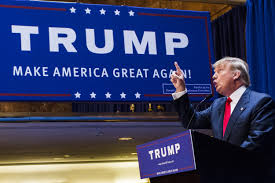I am a fan f the work of Philip Tetlock. He has studied the ability of individuals to forecast the future using a very clever approach, the details of which are beyond this specific blog piece. What Tetlock found in his initial work was that the best predictor that and expert was right or wrong was how recognized or famous they were. However, the correlation was negative. The more fame (or perhaps notoriety), the worse their judgement tended to be. Furthermore, the strongest correlation with correct predictions and judgement was related to cognitive styles which he referred to as either "hedgehogs" or "foxes".

Foxes use a cognitive style which is flexible, adaptive, and measured (tentative) while Hedgehogs are

said to "know one thing and know it well" and to focus on a single, coherent theoretical framework in their analyses and predictions. Quintessential Hedgehogs might be found on television or other media and promote themselves as experts. The most successful people in the realm are not tentative or reflective and they rely on the very brief attention span of the public to forget when they are wrong, and they are often wrong and may be worse than chimps guessing at random. However, they are decisive and attractive to the viewing public.

This cognitive style has worked itself into a central place in politics. For some reason, we are now surprised when political candidates with notable hedgehog like tendencies are appealing to the public. Bernie Sanders is an off the chart Hedgehog. His big thing is income inequality and vilifying financial markets and institutions. Is there any nuance in his appeals? I have not seen any yet. For all of the criticism coming Hillary's way, one cannot accuse her of just knowing one thing well.
The Republican may be similar. Donald Trump may be hard to characterize as a typical hedgehog, but I believe he is. His one big thing is his experience in business allows him to make deals and "Make America Great". It is a simple hedgehog like message. His reality show suggested that one can makes one's organization simply by firing people. He is an odd expert but he fits into the

expert class, holding expertise and information which are proprietary and he implies he will move America back to greatness through his own special will and special sauce. Both he and Ted Cruz push to motivate and unify people by vilifying and mockery, which is one of their big things.
As politics and the entertainment industries have become blurred in terms of where one ends and another begins, it is not surprising that characteristics which make individuals attractive as entertainers and maintain ratings turn out to be the same characteristics which make them attractive to the voters. This is not new. JFK perhaps ushered in this phase of politics. His family links to Hollywood were strong and his father Joe understood the importance of image and simple and compelling ideas, whether they were right or wrong. Ronald Reagan was the master of this domain and he was a hedgehog.
What is worrisome is these same hedgehog like characteristics are also basically markers of bad judgment. How do we address this? Is it addressable? I suspect it is not and represents a basic human limitation. One approach may be to push to limit the ability of parties to appeal to voters through some sort of legislative or regulatory action. I have little confidence that this will yield results which leave us better off. In my opinion, these observations represent a compelling reason to create limits on what should or can be done via exercise of political power.